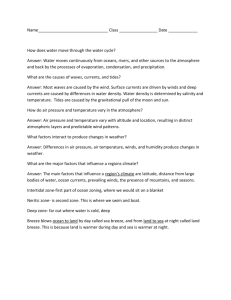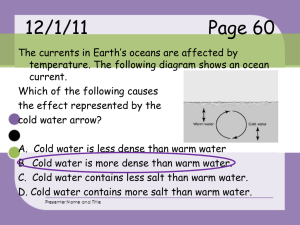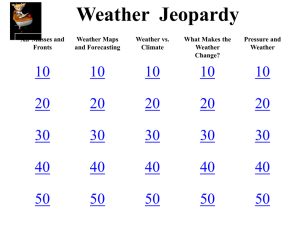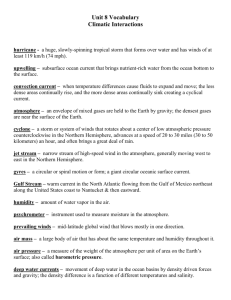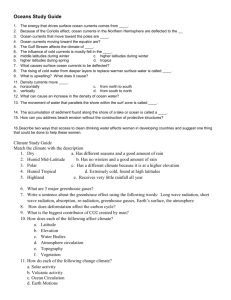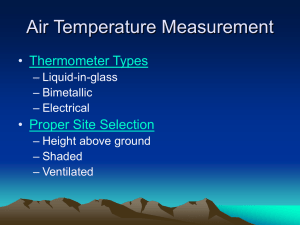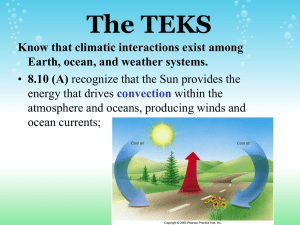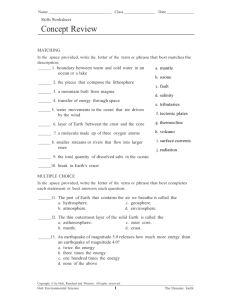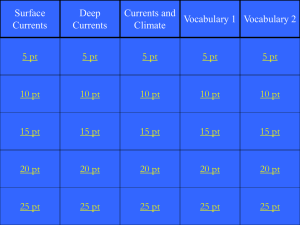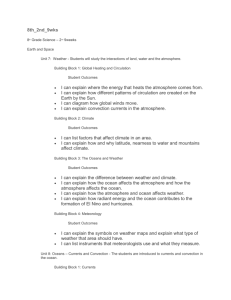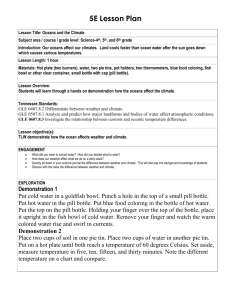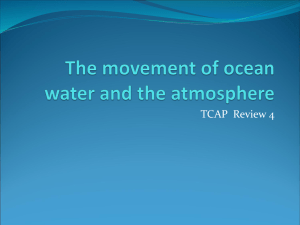Winds blow from high to low pressure Convection currents and
advertisement
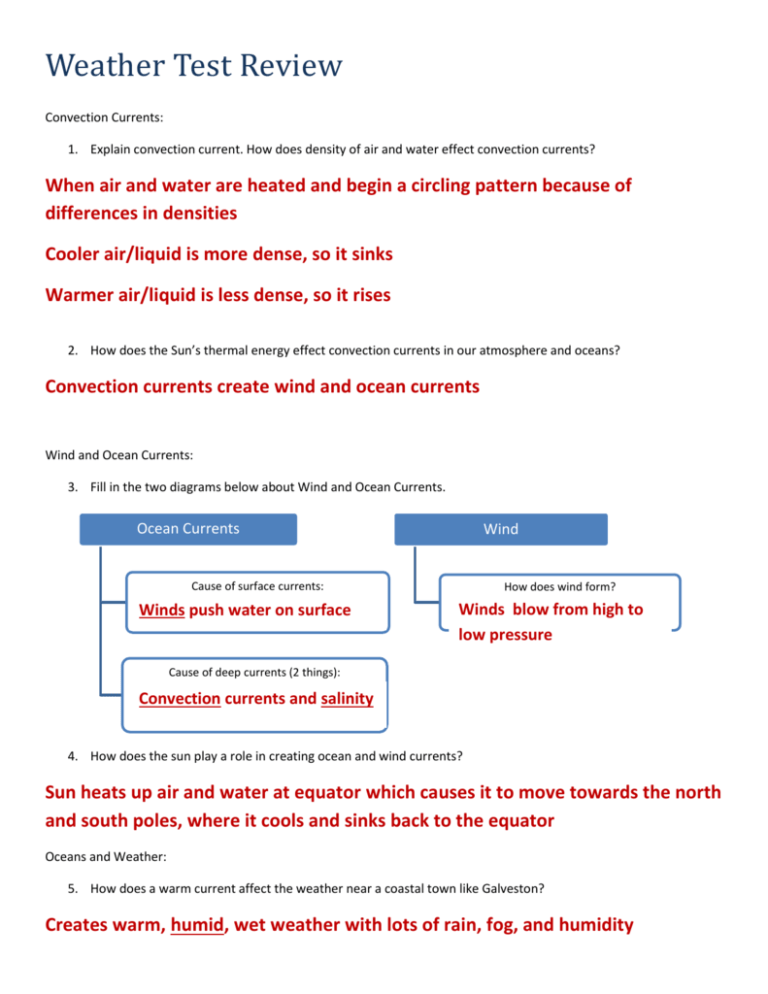
Weather Test Review Convection Currents: 1. Explain convection current. How does density of air and water effect convection currents? When air and water are heated and begin a circling pattern because of differences in densities Cooler air/liquid is more dense, so it sinks Warmer air/liquid is less dense, so it rises 2. How does the Sun’s thermal energy effect convection currents in our atmosphere and oceans? Convection currents create wind and ocean currents Wind and Ocean Currents: 3. Fill in the two diagrams below about Wind and Ocean Currents. Ocean Currents Wind Cause of surface currents: Winds push water on surface How does wind form? Winds blow from high to low pressure Cause of deep currents (2 things): Convection currents and salinity 4. How does the sun play a role in creating ocean and wind currents? Sun heats up air and water at equator which causes it to move towards the north and south poles, where it cools and sinks back to the equator Oceans and Weather: 5. How does a warm current affect the weather near a coastal town like Galveston? Creates warm, humid, wet weather with lots of rain, fog, and humidity 6. How does a cold current affect the weather near a coastal town in like New York City? Creates colder weather with rain, but very little humidity 7. Complete the diagram below about Hurricanes: Hurricanes: How is a hurricane created? Warm winds from Africa blow over Atlantic Ocean and begin to evaporate ocean water What feeds a hurricane and keeps it alive? What are two thigns that kills a hurricane? Low pressure and warm ocean waters Cold ocean water or moving over land Land vs. Sea Breeze? 8. Draw a picture of land and sea breeze in the following boxes. Be sure to include a sun if it during the day and a moon if it is during the night. Land Breeze: day or night? Sea Breeze: day or night? Occurs during the night when wind blows from the land to the ocean Occurs during the day when wind blows from the ocean to the land 9. What causes the winds to change during the day and night during a land and sea breeze? During the day the land absorbs more heat creating a low pressure system over land and high pressure over ocean, and during the night it looses its heat, creating a high pressure system over land and low pressure over ocean. Winds blow high to low so the direction of wind changes. 10. Low Pressure vs. High Pressure Low Pressure Warm air mass, Wet Weather, Humid, Counterclockwise, Cloudy, Scattered storms, rain High Pressure Colds air mass, Clear skies, Clockwise, Fair weather Fronts: 11. Fill out the diagram below about fronts: Warm Front: Warm air mass moves into cold air mass, temperature rise and brings wet weather (scattered storms), humidity, and cloudy days How does the weather change with these fronts? Cold Front: Cold air mass moves over a warm air mass, temperatures drop (gets colder) and brings quick thunderstorms followed by many days of clear skies Stationary Front: Warm front and cold front run into each other and get stuck, brings many days of rain/thunderstorms and not nice weather Weather Map 12. Draw each symbol below that you would find on a weather map: Warm Front Cold Front Stationary Front High Pressure Low Pressure 13. Answer the following questions using the weather map below (see back for state names): 14. Where on the map would you expect cloudy weather based on the type of air pressure? West Texas or Utah (low pressure area) 15. Where on the map would you expect clear skies based on the type of air pressure? Canada or Atlantic Ocean 16. What type of weather will Tennessee expect to have in the next couple of days? Cold front is coming in, so temperatures will lower (get colder), there will be quick thunderstorms followed by clear skies and fair weather 17. What type of weather will Wyoming expect to have in the next couple of days? Warm front it coming in, temperature will lower and bring days of scattered showers and other types of wet weather
